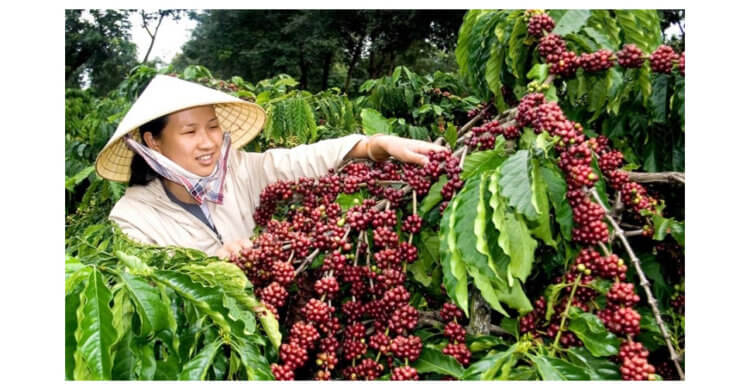Experts say by 2050the agricultural geography of the world may change dramatically, and in parallel with this there will be a food crisis. Many familiar products, including coffee, may be in short supply. The fact is that the population of the Earth will continue to increase. If now there are less than 8 billion people on the planet, then in 30 years this figure will reach 10 billion. At the same time, global warming will become even more tangible. Of course, some products will be replaced by others. There is indeed some truth in the well-known joke that we will grow bananas instead of potatoes. For example, in Georgia there will be ideal conditions for growing citrus fruits. However, it should be borne in mind that, following an increase in temperature, the land area on Earth will begin to decrease, as the level of the ocean will rise. In addition, many regions will become completely unsuitable for agriculture due to drought and high temperatures that even the most heat-loving plants will not withstand. Also, do not forget that global warming will destroy some species of fish. But now let's talk about plants. Using coffee as an example, scientists were able to show how serious the consequences of global warming for agriculture can be.

As a result of global warming, coffee may be in short supply
Climate warming could cause coffee shortages
Currently leading coffee producersare countries such as Brazil, Vietnam, Colombia and Indonesia. According to experts, the area suitable for growing coffee in these countries will be greatly reduced by 2050. This is stated in a study published in the journal PLOS One. In it, scientists modeled how the growing conditions for products such as coffee, cashews and avocados will change.
According to the authors of the work, of these three culturesCoffee will be the hardest hit by global warming. Modeling has shown that the number of regions where this crop can grow will be reduced by 50% by 2050. Despite the fact that countries such as the USA, Argentina, Uruguay and China will be able to grow coffee, they will not be able to compensate for the overall reduction in its growing areas.

Areas where coffee grows will be halved as a result of global warming
Territory reduction is primarilythe result of rising annual temperatures in coffee-producing countries such as Brazil, Vietnam, Indonesia and Colombia. But cashew nuts will suffer only locally in certain areas, where their cultivation area may decrease by 55 percent or even more. However, in general, on Earth, according to scientists, it can increase by 17 percent. This is due to the fact that winters will become warmer in high and low latitudes, such as the USA, Argentina and Australia.
Approximately the same situation awaits Avocado,which has evolved to grow in tropical forests. In many regions where the climate warms, precipitation will become more abundant. That is, by 2050 there will be favorable conditions for growing this fruit. As a result, the area where it will be possible to grow avocados will increase by 12-20 percent.
“Of course, in many ways people will be able to compensatechanging conditions. Scientists and farmers are already experimenting with crossbreeding certain crops to produce hardier varieties that can better survive climate change. In some regions, such as the states of Georgia and Sicily, completely new types of crops are already being planted. But the study warns that these measures may not be enough,” says study co-author Roman Grüter, an environmental scientist at the University of Zurich.
It must be said that the results of thisThe simulations are in line with earlier studies, which also showed that warmer temperatures would negatively impact coffee. However, in the new work, the authors took into account many more factors, such as pH and soil texture, which will change as a result of increased precipitation. This made it possible to obtain more accurate data.

Avocados are unlikely to be affected by global warming by 2050
However, it should be noted that the increase in arealand suitable for growing certain crops does not mean an increase in the production of the products themselves. First, in some regions, yields may be low. In addition, the study does not take into account such a factor as pests, the number of which may increase as a result of climate warming.
Why it is necessary to prepare for the consequences of global warming in advance
As a rule, all modern research,models of the impact of climate change on agriculture concern the most popular crops such as corn, soybeans and wheat. They also pay the most attention to the breeder. At the same time, products that are grown on small farms have been little studied. However, their importance should not be underestimated, because they make up a third of all products on the food market.
On our Yandex.Zen channel you will find even more exciting materials that have not been published on the site.
In addition, unlike the same corn andwheat, coffee is a perennial crop. This means that farmers plant it long before harvest. So you need to know in advance which variety should be planted. Obviously, many crops, such as coffee, will need the help of plant breeders to adapt to new conditions. However, breeding can take years. If this is not done in a timely manner, breeders will simply not keep up with changing conditions on Earth.
Therefore, according to scientists, it is necessary nowпроводить больше исследований того, как изменение климата повлияет на те или иные культуры, и в соответствии с ними начинать готовить новые сорта. Разумеется, помимо кофе есть и более значимые для человечества продукты, которых мы можем лишиться, если не не начать действовать сейчас. Ну а что касается бодрящего напитка, ему уже придумана искусственная альтернатива.







